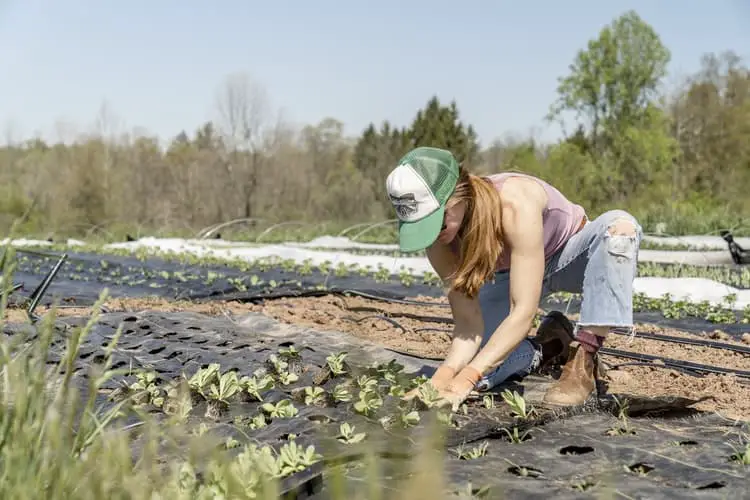
The field of agriculture has been a major component of the global economy for thousands of years. While agriculture may not be as dominant an industry today as before, there is still a myriad of opportunities for someone interested in this field. One of the most promising careers in agriculture is the scientific and research-based role of an agronomist. Agronomy is the science of improving agricultural productivity. An agronomist is an individual whose professional role is to research how agricultural practices can improve crop yield.
Agronomist Job Description
An agronomist is a scientist with an academic basis in chemistry and biology, whose exact area of specialization consists of improving agricultural practices. As such, their areas of concern vary from crop production to soil management and control. The primary goal of an agronomist is to maximize crop production in a particular area of land. This makes agronomists a vital component of the modern agricultural industry, and their specialized scientific knowledge makes them especially valuable. A good agronomist could make the difference between a failed harvest and a bountiful one.
Agronomists achieve this role by collaborating with both farmers and crop researchers to research crop data. An agronomist will then take this data to develop solutions for individual farmers to improve their crop yields. Agronomists achieve this goal by attaining specialization in different aspects of agriculture. The exact specialization that an agronomist will choose, whether it is soil management or crop production, will dictate their occupation’s nature, with there being associated advantages and disadvantages of any area of specialization.
Therefore, the role of an agronomist is a monumental one that remains in line with contemporary trends of the increasing value of intellectual thought in favor of manual ability. An effective agronomist is an individual with a strong scientific education and good problem-solving skills, which allow them to provide appropriate solutions for agricultural problems.
Duties of an Agronomist
Agronomists are typically described as being ‘crop-doctors’ since many of their professional duties involve detecting and treating problems with crops and figuring out how to fix them. An agronomist will, therefore, begin their job by examining a crop to find evidence of disease, insects, invasive weeds, or soil issues. They achieve this by utilizing a diversity of scientific tools and devices at their disposal.
Once an agronomist has detected the problem with a crop, their next task is to develop an effective solution. An agronomist will achieve this by investigating the source of the problem in view of the vital activities of planting, cultivating, and harvesting crops. Agronomists will often collaborate directly with farmers to conduct experiments on their crops to gain data on how the crop’s health could be maximized. A typical agronomist will utilize the knowledge that they have gained through an extensive stud of relevant fields such as chemistry, biology, genetics, and even economics.
Given that agronomists are scientists themselves, they will often be required to compare the data that gain through their investigations with existing scientific literature and references in order to develop a solution that is coherent with existing scientific findings.
Ultimately, upon discovering the most effective solution, from a scientific perspective, an agronomist will provide a formal presentation to a farmer on how they can implement the solution for improving the efficiency and health of their crop. An agronomist’s duties will often extend to actually assisting the farmer in the implementation of their advice, although this is not a strict requirement in all circumstances.
Agronomists can also specialize in a number of areas, as mentioned, above which include the following:
- Research: This specialization includes several different fields ranging from crop productivity to genetic engineering and sustainable development. Agronomists who specialize in research will focus on lab work and typically have higher academic credentials.
- Crop Management: This variety of agronomists will focus the most on working in the field. Their activities will range from crop planting and harvesting to also improving farming practices. It is a vocation that requires a lot of out-door work, contrasting it with other roles.
- Soil and Water Management: To be a specialist in soil and water management, it is often necessary for agronomists to have a strong academic history in engineering and biology. Their duties will range from working on reducing the threat of soil erosion, soil deterioration and assisting in water runoff and water quality management. This specialization requires time both within and outside a lab, placing in between the research and crop management specializations in time spent outside.
Agronomist Salary
Concerning compensation, an agronomist’s job is a relatively medium-income vocation with an initial average salary of $55,000 in the United States. However, a more experienced agronomist with a master’s degree and two years of professional experience could expect an average salary closer to $75,000. With several years of professional experience and a reputation for high-performance, the most experienced agronomists can receive a salary as high as $101,000.
An agronomist’s salary is also dependent on where in the United States they are being employed as more agriculturally dependent states have a much higher demand for skilled agronomists than states that depend far less on agriculture.
Conclusion
An agronomist’s role is a relatively niche but an extremely important one in today’s agricultural industry. An agronomist is essentially a scientist whose duties extend to the maximization of crop yield and health. They achieve this goal by applying a mix of knowledge from a number of fields ranging from biology to chemistry. Agronomists can specialize in many areas that dictate the amount of lab versus field world they have to commit to. The typical agronomist’s job will start from first examining a crop to discover the sources of its problems and then apply their scientific knowledge for discovering a suitable and effective solution that an agronomist will then present to a farmer.
Also READ What is a Sales Advisor? Salary, Job Description